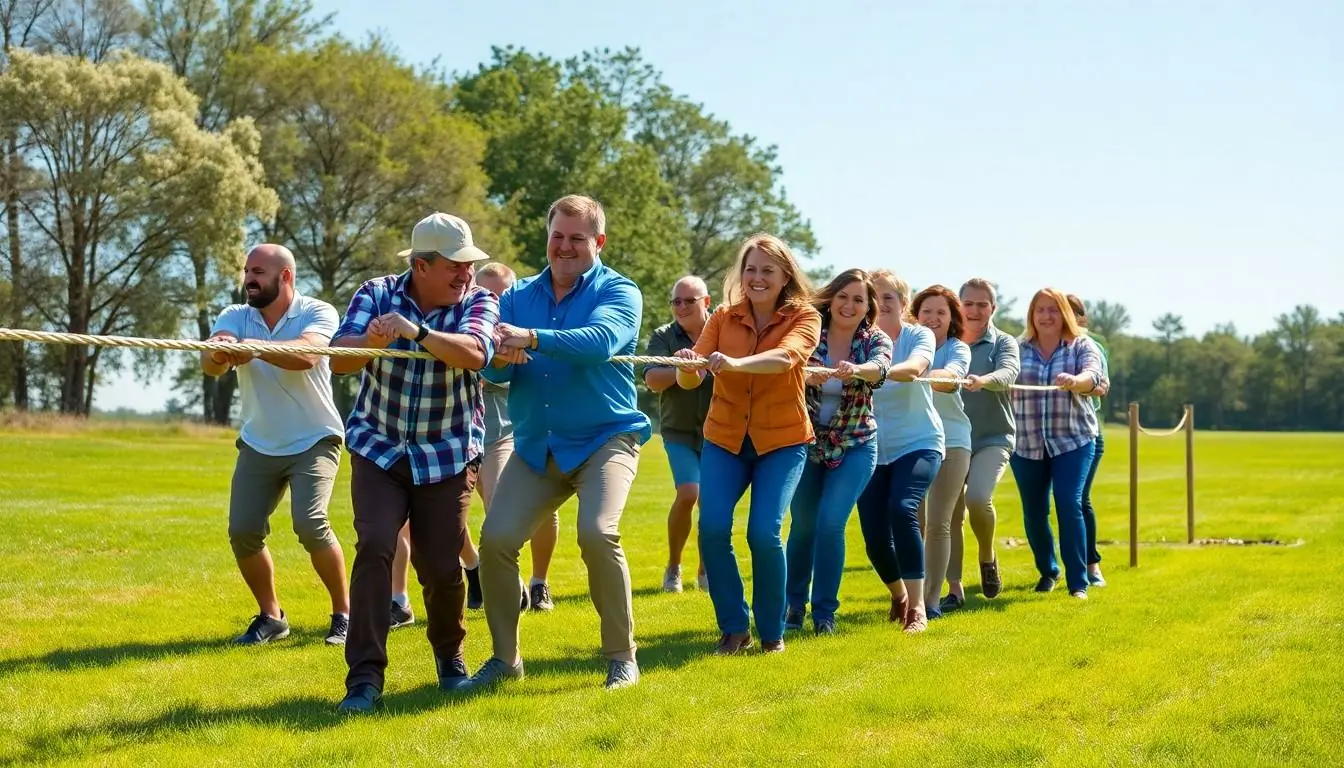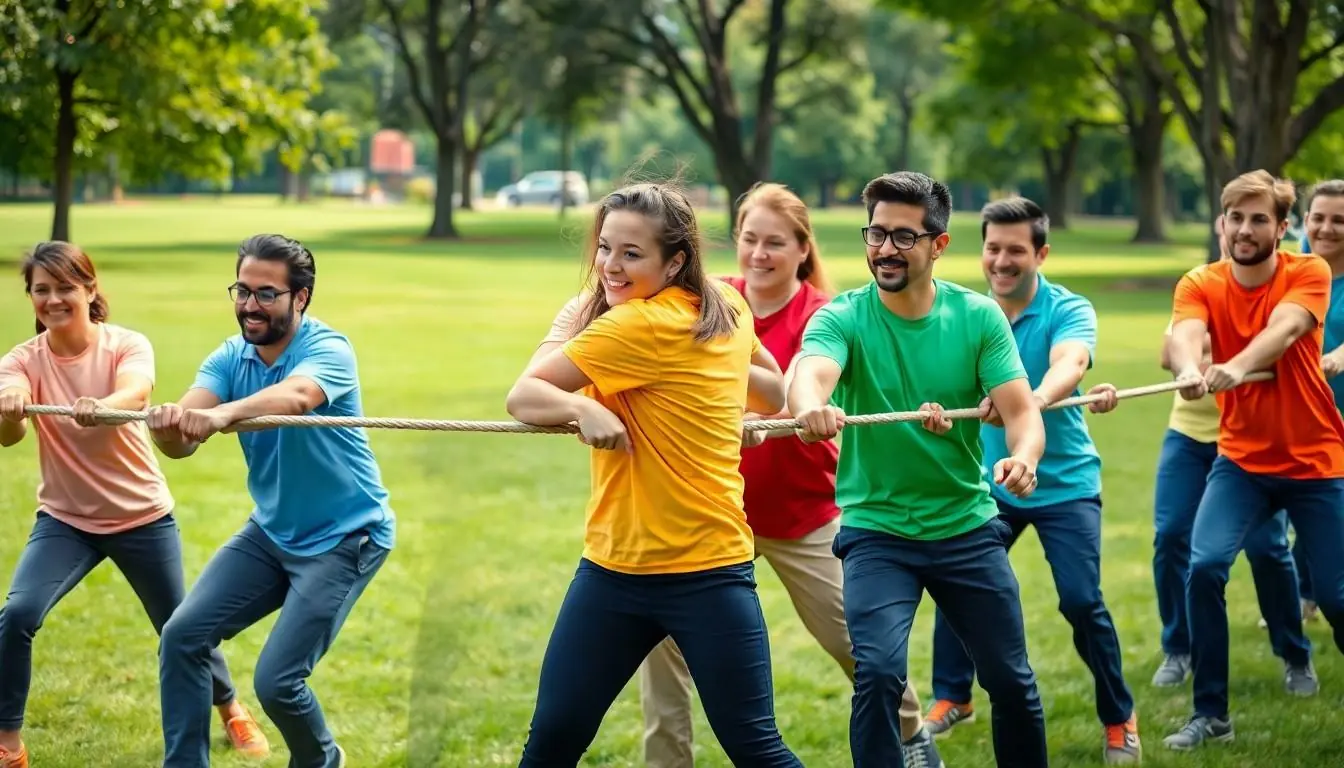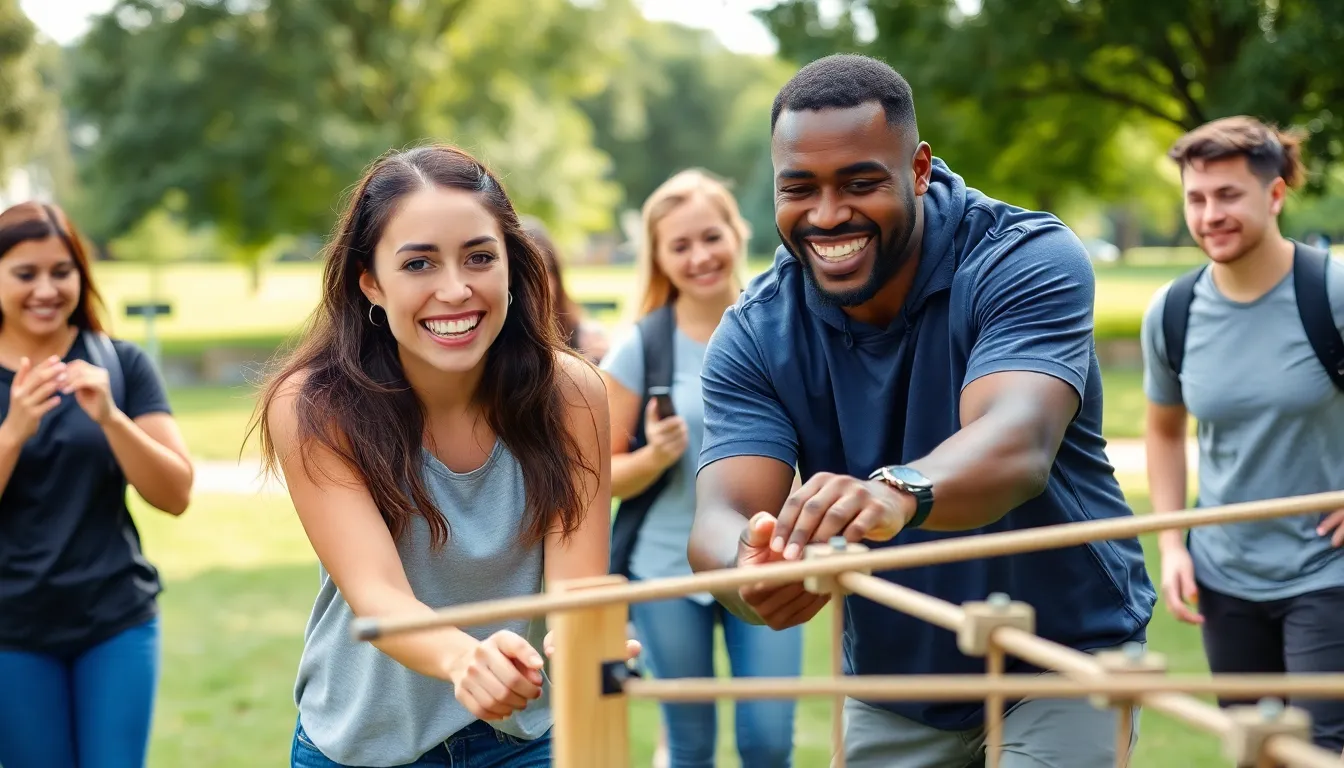In a world where office chairs are the new thrones and coffee breaks double as strategy sessions, it’s time to shake things up with some outdoor team building games. Imagine your coworkers, once glued to their screens, now racing through a park, laughing and bonding over friendly competition. Sounds like a dream, right? Well, it’s time to turn that dream into reality.
Table of Contents
ToggleBenefits Of Outdoor Team Building Games
Outdoor team building games deliver various benefits that significantly enhance workplace dynamics. Engaging in physical activities fosters better relationships among coworkers, resulting in a more cohesive team.
Enhanced Communication Skills
Effective communication thrives in outdoor settings. Participants engage in activities that require verbal and non-verbal interaction. During games, team members express ideas clearly and listen attentively to one another, promoting understanding. This environment encourages individuals to share thoughts openly, breaking down barriers present in office settings. Enhanced communication reduces misunderstandings and improves collaboration in daily tasks.
Improved Teamwork and Collaboration
Outdoor games cultivate a spirit of teamwork and collaboration. Working together towards a common goal fosters trust among coworkers. Participants rely on each other’s strengths, combining skills to achieve objectives. Such collaboration reinforces a sense of belonging and boosts morale. Improved teamwork translates into increased productivity during regular work hours, as employees learn to navigate challenges as a unified group.
Types Of Outdoor Team Building Games

Outdoor team building games encompass various categories, enhancing teamwork and collaboration. Two primary types include physical activities and problem-solving games.
Physical Activities
Physical activities engage participants in competitive sports or cooperative challenges. Games like tug-of-war or relay races promote physical fitness while fostering team spirit. Participants often develop better communication skills as they strategize during these action-packed events. Incorporating obstacle courses enhances physical strength and endurance. Teams learn to motivate each other, creating a supportive atmosphere. These dynamics lead to improved camaraderie among coworkers.
Problem-Solving Games
Problem-solving games emphasize critical thinking and teamwork. Activities such as scavenger hunts or escape room challenges require participants to work together to find solutions. Team members share diverse perspectives, enhancing creativity and collaboration. Complex puzzles often stimulate discussion and encourage innovative approaches to challenges. Successful outcomes in these games boost confidence and trust. Participants gain valuable skills applicable to workplace scenarios. Effective problem-solving directly translates to improved operational efficiency in everyday tasks.
How To Organize Outdoor Team Building Games
Organizing outdoor team building games requires careful planning and attention to detail. Consider the following aspects for successful execution.
Choosing The Right Location
Selecting the right location sets the tone for the event. Parks equipped with open spaces and amenities enhance engagement. Ensure the area chosen accommodates the number of participants and offers a safe environment free from distractions. Proximity to the workplace can also encourage higher attendance. Scout for locations that provide necessary equipment, such as picnic tables or restrooms. Accessibility for all team members is crucial as well. Including unique features like scenic views or natural elements can inspire creativity and add excitement.
Planning The Activities
Planning activities ensures a balanced mix of fun and challenges. Identify games suited to the team’s size and skill levels. Activities should promote collaboration and communication while considering participants’ physical abilities. Set clear objectives for each game to maintain focus. Incorporating a variety of games, like relay races and scavenger hunts, caters to diverse interests and encourages active participation. Allocate sufficient time for each activity while leaving room for flexibility. Prepare contingency plans for inclement weather or unforeseen circumstances to ensure smooth execution.
Safety Considerations
Ensuring safety during outdoor team building games is crucial. Identify potential hazards at the chosen location, such as uneven terrain or nearby water sources. Participants must receive a safety briefing that outlines the rules and expectations before starting any activity.
Assess each game’s physical demands. Roller-skating or strenuous obstacle courses require a higher fitness level, so consider the abilities of all participants. Activities must be adaptable for varying skill levels to prevent injuries and ensure everyone can join.
First aid kits should be readily available. Equip team leaders with basic medical supplies and a plan for responding to minor injuries. Having trained personnel on-site can significantly enhance safety protocols, ensuring immediate assistance if needed.
Establish a check-in system for participants. Frequent headcounts throughout the activities prevent individuals from wandering off or getting lost. This system promotes accountability and keeps everyone informed of the team’s status.
Hydration is vital. Encourage participants to drink water regularly, especially in warm weather. Setting up designated refreshment stations helps maintain energy levels and prevents dehydration.
Communication plays a key role in safety. Use clear signals or designated words to convey messages during games. This practice keeps the atmosphere focused while promoting teamwork and attentiveness.
Review weather conditions before the event. Extreme heat, rain, or storms can pose risks. Adjust plans based on forecasts to ensure a fun and secure environment for all participants.
Outdoor team building games offer a unique way to break free from the confines of the office and foster a sense of community among coworkers. By engaging in both physical and problem-solving activities, teams can cultivate trust and improve communication skills. The benefits extend beyond the games themselves as these experiences translate into enhanced workplace dynamics and increased productivity.
With proper planning and attention to safety, organizations can create memorable events that not only entertain but also strengthen team bonds. Embracing outdoor activities can lead to a healthier work environment where collaboration thrives and employees feel valued. Investing in these experiences is a step towards a more cohesive and motivated team.







